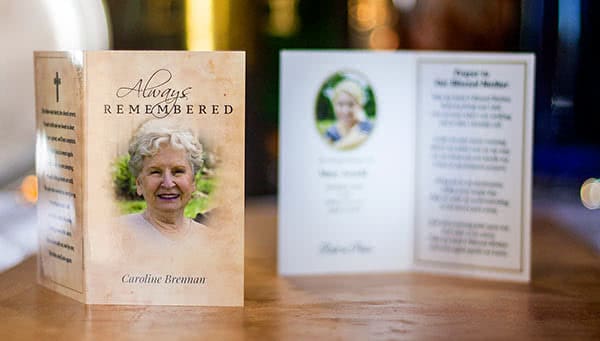Introduction
In Ireland, a land steeped in history, culture, and deep-rooted traditions, the passing of loved ones holds a special place in the hearts of its people. As a nation that values remembrance and connection, memorial cards have become a cherished and significant part of the grieving process. In this article, we explore the unique importance of memorial cards in Ireland, their historical roots, and the ways in which they serve as a poignant tribute to those who have departed.
A Cultural Tradition
Memorial cards have a long-standing presence in Irish funeral customs, embodying the essence of Irish culture and tradition. Historically, these cards were often distributed at wakes and memorial services to provide solace and support to grieving families. Today, they continue to be an integral part of the mourning process, offering a tangible connection to the departed and a means of remembering their lives.
Preserving Ancestral Heritage
Ireland has a rich and vibrant ancestral heritage, with many families tracing their roots back generations. Memorial cards play a crucial role in preserving this heritage by capturing the essence of family history. Often adorned with Celtic motifs, religious symbols, or traditional Irish blessings, these cards not only pay tribute to the departed but also serve as a link between past and present, ensuring that ancestral connections remain alive and cherished.
Personalized and Intimate Keepsakes
Memorial cards in Ireland are deeply personal and intimate keepsakes. They typically feature a photograph of the deceased, along with their name, date of birth, and date of passing. These cards may also include poignant poems, verses from Irish literature, or heartfelt messages that reflect the personality and spirit of the departed. The individualized nature of these cards provides comfort to grieving families and serves as a tangible representation of their loved one’s unique journey.
Symbolism and Spirituality
Ireland has a strong spiritual and religious tradition, and memorial cards often reflect this deep-rooted faith. They may incorporate religious symbols such as crosses, angels, or Celtic knots, along with prayers or verses from sacred texts. The symbolism embedded in these cards offers solace and reassurance, reminding the bereaved of their loved one’s eternal connection with a higher power and providing a source of strength during times of sorrow.
A Sense of Community and Support
In Ireland, memorial cards are not just tokens of remembrance; they also foster a sense of community and support. The act of exchanging these cards at wakes and funerals allows friends, neighbors, and extended family members to come together, offering condolences and sharing in the grief. This collective expression of support provides solace and helps alleviate the burden of mourning, emphasizing the importance of community in the Irish grieving process.
Passing on Family Legacy
One of the enduring qualities of memorial cards in Ireland is their role in passing on the family legacy. These cards become treasured heirlooms, passed down through generations, ensuring that the memory and stories of loved ones endure. As they are shared with future generations, memorial cards become a bridge between the past and the present, preserving family history, values, and cherished memories for years to come.
Conclusion
In Ireland, memorial cards hold deep significance and are an integral part of the grieving process. They preserve ancestral heritage, offering a tangible link to the past, and serve as personalized and intimate keepsakes. With their rich symbolism and connection to spirituality, these cards provide solace and strength during times of sorrow. Moreover, they foster a sense of community and support, bringing people together in shared mourning. As memorial cards continue to pass on family legacies and preserve the memory of loved ones, they become an enduring symbol of heritage, love, and remembrance in Ireland.



































